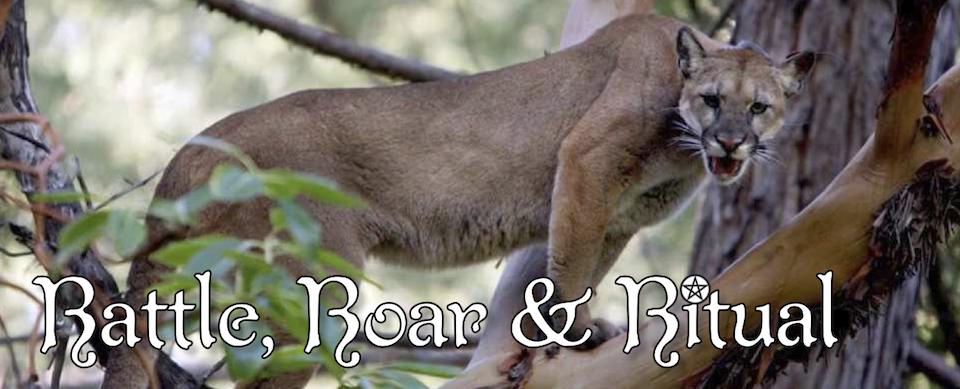Quick summary of the Art of Mentoring: a system of nature connection mentoring and cultural regeneration based largely upon the wisdom of several native cultures. The system notably uses the message of the Great Peacemaker, the Great Law that founded the Iroquois Confederacy. Training in the Art of Mentoring was an experiential learning process. We formed an ancestral village type community and were ourselves mentored as we learned the system and immediately applied that knowledge to mentor each other. This system was founded by Jon Young, who wrote the Coyote's Guide, which is a well-known and influential work in the environmental education industry. I attended this training to further my environmental education career.
As an ancestral village, we had a council of honored elders. Recently I have been discussing cultural appropriation with my spiritual community, and I was now presented with another case of cultural creation with native wisdom at the Art of Mentoring. So at one of the elder councils, I raised the question. Is it appropriate to use this native wisdom? How should we approach this? How do we show respect? When is it appropriate, and when is it not? What do these elders think about cultural appropriation in general?
This touched off a firestorm. Many people had opinions. Several program organizers sought me out. I felt that they were threatened. This amused me greatly as I intended no attack in my question. But it reminded me: back when I first started listening to the CDs from this same system, I thought "I don't need this, I already function in nature like a native. This is just for middle class white people who don't get it".
For the record, the organization has considered this issue extensively and has taken steps to see that they are sensitive and respectful about their usage of native wisdom and song. I still don't agree 100% that what they are doing IS appropriate, but I do jive with the message.
I'm still working through this part of the experience. For one thing, I have integrated many cultures into my spiritual practice, and have learned all sorts of wisdom along the way that has formed my worldview. To some degree, that means I think taking practices and wisdom from other cultures is valid when done respectfully. I feel that the culture in which I grew up failed me in many ways, spiritually first among them. But on the other hand, I myself have experienced racial, sexual, gender and religious bigotry and marginalization. For most of my life, I have felt like a minority, though I am an American and my ethnicity is considered white. So I have mixed feelings about this whole deal.
One of the elders advised me to seek out an elder of a tradition I was drawn to and to ask permission. Another remarked that some native cultures may not want to share any of their traditions out of anger for what was done to them. They have a right to their feelings, and others need to respect that and respect their wishes. Several people echoed this view: if someone says NO, you must respect it. Others said that with our world the way it is, we need to share what is helpful in order to keep evolving and growing as human beings.
The response that surprised me the most came from that magnificent African priestess I mentioned in previous posts. She basically said that what has happened has been tragic in many cases and yes, some people can be very disrespectful and some can be very bitter. But we have a lot more important things to do and worry about than this. She suggested that we help elevate each other and move on.
I don't purport to have the answers about this issue. What I DO know is that we need to talk about it as a community. Contemporary Paganism, as a faith in the process of creation, reconstruction and what have you, draws from many ancestral cultures. Some of us are scholarly about it. Many are reverent and respectful.
But some are not. How many of us know a baby Witch who has studied the Craft for a short period of time, but who is already a Celtic High Priestess of Faery and Eldritch Magick? Or a WASP-y looking woman with long blonde hair who wears cheap-o touristy Native American jewelry and incessantly talks about her power animals? Or maybe the guy from Ohio with not one drop of northern European blood who reads one book about Heathenism and is now an alleged expert on Asatru and the runes?
Once again, I'm calling out the elephant in the room. Many of us are Caucasian. Many of us are working with cultures in which we did not grow up or with which we are not genetically linked. We need to think about this and understand that what we do has ramifications beyond our experience. We need to be respectful and responsible.
One of the Art of Mentoring organizers left me with a good piece of advice: consider the impact of your actions, not just the intent. Your intent in using a particular practice may be good, but consider how it may affect others. Did you get permission? Were you told not to use this practice? Do you know the history of the practice and the real meaning? How will this be received by your audience?
So let's talk. Let's facilitate some roundtable discussions. Let us renew our studies with respect first in our hearts. What do you say?








